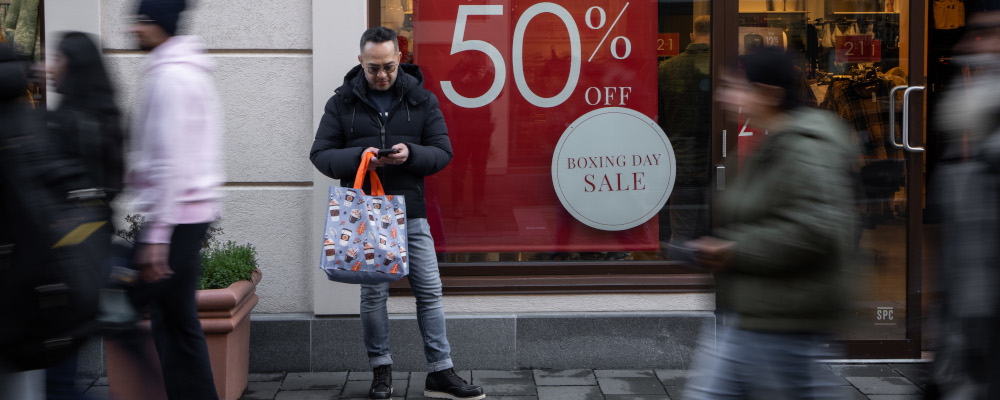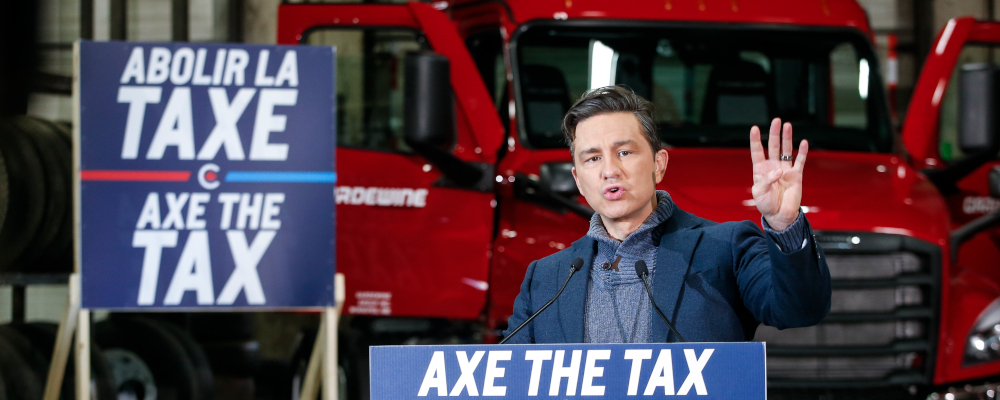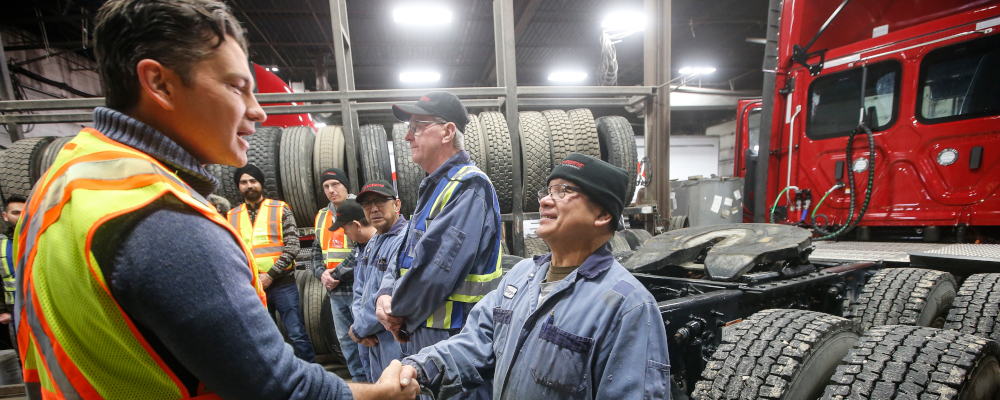The following is the first in a series of French-language articles presented in collaboration with the Montreal Economic Institute. The English translation is included below.
Ce qui a existé, c’est ce qui existera,
et ce qui s’est fait, c’est ce qui se fera.
Il n’y a rien de nouveau sous le soleil.
Ecclésiaste 1:9
Certains se demandent si le libéralisme économique est encore pertinent de nos jours. Le monde n’a-t-il pas considérablement changé depuis l’époque d’Adam Smith, et même depuis celle de F. A. Hayek et de Milton Friedman? Qu’est-ce que cette école de pensée d’un passé révolu peut bien avoir à nous apprendre ici et maintenant, alors que pratiquement le quart du XXIe siècle est entamé?
La réponse courte est que, malgré toutes les nouvelles technologies que nul n’aurait pu imaginer il y a quelques siècles, voire quelques décennies, et malgré notre monde plus riche, plus compliqué et plus peuplé, il n’y a rien de nouveau sous le soleil. Autrement dit, malgré tout ce qui a changé, certaines vérités restent universelles et intemporelles.
En tout lieu et en tout temps, l’énergie ne peut être ni créée ni détruite. Il s’agit là d’une loi de la physique. En tout lieu et en tout temps, le commerce est un jeu à somme positive. Plus précisément, chaque partie à un échange volontaire s’attend à voir sa situation s’améliorer, et c’est généralement le cas. Il s’agit là d’une loi économique.

Le monde a changé à bien des égards, mais quelques-uns de nos principaux enjeux, aujourd’hui comme hier, sont attribuables en grande partie à un manque de liberté économique.
Prenons l’exemple de la hausse rapide du coût de la vie. Le libéralisme économique nous enseigne que l’augmentation de la masse monétaire pour une quantité donnée de biens entraînera une inflation généralisée des prix. Les banques centrales du monde entier ont fait gonfler massivement leur monnaie au cours des dernières années, et celle du Canada ne fait surtout pas exception. Cette mesure était en partie justifiée par la nécessité de financer les mesures prises par les gouvernements en réponse à la pandémie. Quoi que l’on puisse penser de l’efficacité de ces différentes mesures, l’inflation s’est emballée comme on s’y attendait, atteignant des niveaux jamais vus depuis que Hayek et Friedman étaient encore parmi nous.
Bien qu’elle soit revenue à des niveaux moins alarmants aujourd’hui, l’inflation reste obstinément élevée. Le libéralisme économique nous enseigne que les gouvernements pourraient aider les banques centrales à stabiliser le niveau des prix plus rapidement, et donc à faire baisser les taux d’intérêt dans un délai plus court, s’ils mettaient un frein à leurs dépenses excessives financées à coup de déficits.
Voilà ce qui en est du coût de la vie en général. Mais qu’en est-il du cas particulier du logement au Canada? D’un bout à l’autre du pays, les acheteurs potentiels sont confrontés à une crise d’abordabilité. Outre les niveaux d’inflation généralement élevés, qu’est-ce qui pourrait expliquer les hausses exceptionnelles du prix des logements enregistrées ces dernières années?
Là encore, le libéralisme économique offre une réponse universelle et intemporelle : si l’on restreint artificiellement l’offre d’une catégorie de biens, ceux-ci verront leur prix augmenter, d’autant plus si la demande est en hausse.
Et effectivement, les municipalités partout au pays ont restreint l’offre de différentes façons. L’administration Plante à Montréal, par exemple, a bloqué des projets représentant près de 24 000 logements depuis son entrée en fonction en 2017. La situation est loin de s’améliorer, et ce, malgré toute l’attention dont elle fait l’objet depuis un certain temps déjà. Dans l’ensemble de la province de Québec, le nombre de mises en chantier a diminué de 35 percent au cours des onze premiers mois de 2023 par rapport à la même période l’année précédente.
La solution, vous l’aurez deviné, est une plus grande liberté économique. Les municipalités doivent réduire et éliminer les entraves bureaucratiques et laisser les promoteurs construire davantage pour permettre à l’offre de rattraper l’explosion de la demande.

Même des questions qui semblent n’avoir aucun lien avec l’économie peuvent présenter une dimension économique importante. Par exemple, on parle beaucoup ces temps-ci de diversité, d’équité et d’inclusion des groupes sous-représentés qui ont historiquement souffert de discrimination. Si certaines mesures prises à cet égard peuvent être tout à fait ridicules, cela ne signifie pas pour autant que la discrimination n’existe pas ou que certaines personnes ne subissent pas encore les effets d’injustices passées.
En quoi cela concerne-t-il l’économie? Eh bien, il n’y a pas de meilleure façon d’exclure les groupes marginalisés que de les empêcher de joindre les deux bouts et de les exclure du marché du logement en augmentant les prix en flèche.
Le renforcement de la liberté économique, au contraire, accroît la mobilité des moins nantis, en les aidant à s’aider eux-mêmes. C’est exactement ce qui s’est passé en Alberta dans les années 1990, par exemple, lorsque des réductions importantes des dépenses publiques et du fardeau réglementaire ont mené à une mobilité du revenu beaucoup plus grande parmi le segment le plus pauvre de la population.
Pour bon nombre des problèmes qui touchent notre société, qu’il s’agisse du ralentissement de la productivité ou de la sous-performance persistante de nos systèmes de soins de santé, le problème vient, au moins en partie, d’un manque de liberté économique, et la solution passe, au moins en partie, par une plus grande dose de celle-ci.
Nos dirigeants civiques et politiques, ainsi que nos fonctionnaires, pourraient faire bien pire que de revisiter Smith, Hayek, Friedman et d’autres défenseurs du libéralisme économique pour y puiser les vérités intemporelles que ceux-ci ont découvertes et exposées.
Why economic liberalism still matters
What has been will be again,
what has been done will be done again;
there is nothing new under the sun.
Ecclesiastes 1:9
Many people are wondering if economic liberalism is still relevant in this day and age. Hasn’t the world changed tremendously since the time of Adam Smith, and even since the time of F. A. Hayek and Milton Friedman? What could this school of thought from bygone years have to teach us here and now, almost a quarter of the way through the 21st century?
The short answer is that despite all the new technologies unimagined centuries or even decades ago—despite our richer, more complicated, more populous world—in a very real sense, there’s nothing new under the sun. What I mean by this is that despite all that’s changed, certain truths are universal and timeless.
Everywhere and always, energy can neither be created nor destroyed. That’s a law of physics. Everywhere and always, trade is positive sum—or more precisely, both parties to a voluntary exchange expect to be, and generally are, made better off. That’s a law of economics.
The world has changed in many ways, but some of our main problems today, as in days of yore, are due in large part to a lack of economic freedom.
Take the rapidly rising cost of living. Economic liberalism teaches us that increasing the money supply for a given quantity of goods will lead to generalized price inflation. Central banks around the world massively inflated currencies in recent years, Canada very much included. This was partly justified as a way to fund governments’ pandemic response measures. Whatever one thinks of the effectiveness of those various efforts, as predicted, inflation took off, reaching levels not seen since Hayek and Friedman were still with us.
Although it’s come back down to less alarming levels today, inflation remains stubbornly high. Economic liberalism teaches us that governments could help central banks stabilize price levels more quickly, and so bring interest rates back down sooner if they reined in their deficit-fuelled spending sprees.
So much for the general cost of living. What about the specific case of housing in Canada? Across the country, potential buyers are facing an affordability crisis. What, beyond our generally high inflation levels, could be behind the exceptional increases in housing prices we’ve seen in recent years?
Again, economic liberalism has a universal and timeless answer: if you artificially restrict the supply of a category of goods, their prices will rise—all the more so if demand happens to be increasing.
And indeed, municipalities across the country have been restricting supply in various ways. Montreal’s Plante administration, for instance, has obstructed projects totalling nearly 24,000 units since taking office in 2017. The situation is not exactly improving, either, despite the widespread attention it has been receiving for some time now. The province of Quebec as a whole actually had 35 percent fewer housing starts in the first 11 months of 2023 than during the same period the year before.
The solution, you guessed it, is greater economic freedom. Municipalities need to reduce and remove bureaucratic restrictions and let developers build more so that supply has the chance to catch up with soaring demand.
Even seemingly unrelated issues can have an important economic component. For instance, there’s a lot of talk these days about diversity, equity, and inclusion for underrepresented groups that have historically suffered discrimination. While some steps taken to address this issue can be downright ridiculous, that doesn’t mean there’s no discrimination out there, or that people are not still suffering the effects of past injustices.
So, what’s the economic angle? Well, there are fewer better ways to exclude marginalized groups than to keep them struggling to make ends meet and price them right out of the housing market.
Augmenting economic freedom, on the other hand, increases mobility for the poor, helping them to help themselves. This is just what occurred in Alberta in the 1990s, for instance, when significant reductions in government spending and the regulatory burden led to substantially greater income mobility among the poorest segment of the population.
For many of the issues our society is facing, from lagging productivity to our perennially underperforming health-care systems, at least a part of the problem is a lack of economic freedom, and at least part of the solution is more of it.
Our civic and political leaders, and public servants, could do a lot worse than revisit Smith, Hayek, Friedman, and other advocates of economic liberalism for the timeless truths they discovered and explained.
Recommended for You

Ginny Roth: J.D. Vance, Pierre Poilievre, and how they slice their economic pie

David Polansky: As President Biden leaves the race, will the Democratic Party hodgepodge hold?

RCMP spending to protect MPs may have risen 112% since 2018, as Canadian politicians face greater rise in threats

Trevor Tombe: Canadians are paying billions in hidden taxes on new homes











